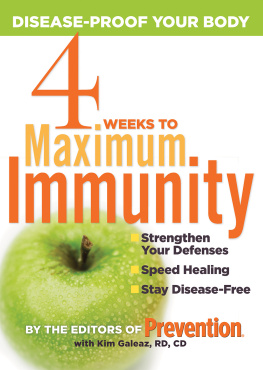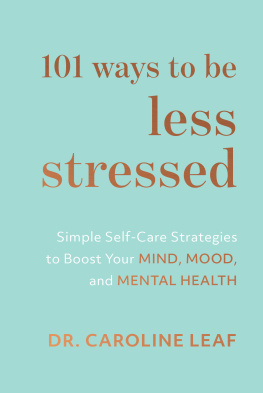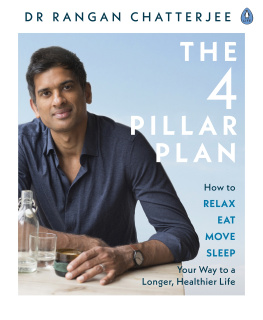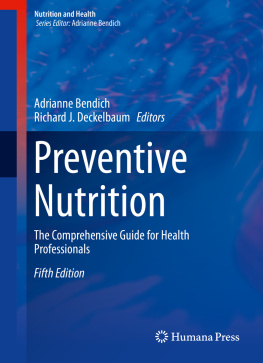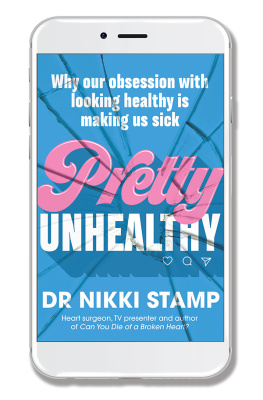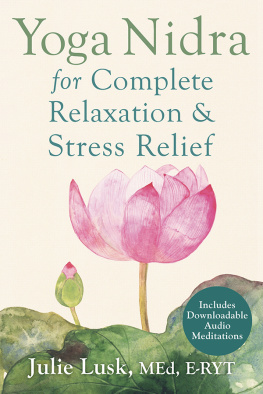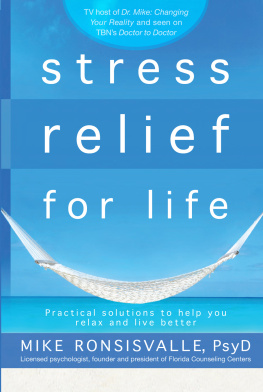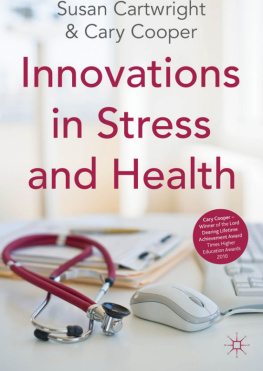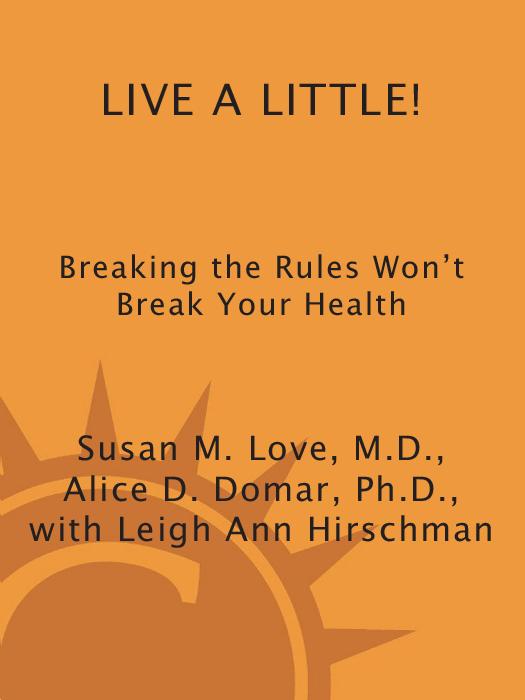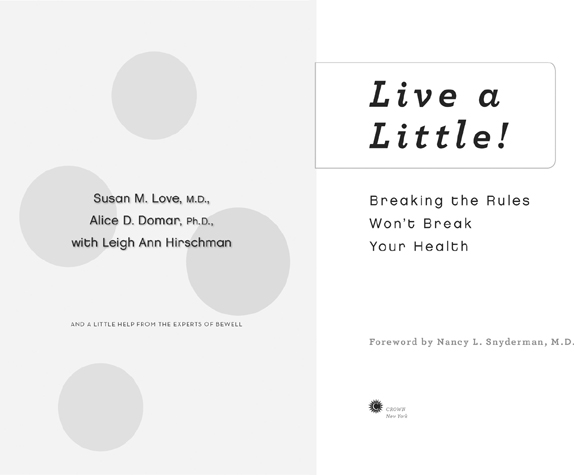This book is designed to help you develop a balanced perspective on your health and make informed choices. It is not intended to replace advice from a health care professional who knows you personally. Before you make a significant decision about your health care, we urge you to get information from a variety of smart sources, listen to your own good sense, and talk the matter over with a doctor or other licensed health care provider who has earned your trust.
Foreword
This morning I had my nonfat Greek yogurt for breakfast, which is my usual start to the day. In fact, except for the days when I substitute a bowl of Cheerios in place of the yogurt, my breakfasts are not particularly daring. But its always my hope that a good breakfast will lay the foundation for smart eating during the remainder of the day. I try to choose healthy foods, and that makes me feel good (and, as my friend Dr. Susan Love says, it also makes me feel morally righteouseven if only for a moment).
Now, based on what Ive just told you and on the fact that Im a doctor, you might think that Im the paragon of good health. But you know by the title of this book that having a real life means not being perfect all the time. The goal is to be healthynot a fanaticand to live a little.
Living well starts with having concrete information, listening to that voice deep inside that tells you when things arent quite right. It means living life to the moderate.
Most of us do live somewhere in the middle, between the forty-yard lines. We are not meant to sacrifice all the time, nor gorge all the time. The end goal is to find that happy medium, then kick up our heels and, yes, live a little.
We all have our strengths (I dont smoke) and our weaknesses (Milk Duds). Thats the point. Life is a balancing act. Life, our health, how we live day in and day out, is full of small and large decisions that have a bearing on our overall being.
Medicine is imprecise. It is a blend of art and science with one very, very important componentyou. When it is at its best, modern (or for that matter, ancient) medicine is like a wagon wheel. You are the hub, and the doctors, nurses, pharmacists, healers, acupuncturists, massage therapists, and anyone else you rely on make up the spokes. It is made up of all these separate pieces, yet is also more than the sum of its parts. But it always, always should have you at its center.
One of the interesting things about that wheel, though, is that the spokes sometimes poke at one another. Doctors are like everyone elsewe all have opinions and dont always agree with one another. Thats good for you and, yes, sometimes confusing. It means that you dont have to take one persons opinion as gospel, but it also means that you have to do your homework.
Making health decisions for ourselves is like standing in the cereal aisle of a very big grocery store. There are so many choices that the simplest decision can be overwhelming. We think we know what to buy; we know how to read a label; we know the arguments about fat, protein, sugar, and fiber; we know what tastes good. So on one day we buy low-fat granola, and on another we find ourselves reaching for the Froot Loops. Such is life.
The same argument can be made for exercising (a word that I have come to believe is a four-letter word in disguise). Of course we know that exercise is good for us and keeps our HDL, the good cholesterol, up and makes our hearts and bones stronger. So on a good day, we take the steps and not the elevator. On other days, simply the idea of changing clothes and sweating sounds like just another chore.
Every day we make health decisions that affect our lives and the lives of our partners and children. We make these decisions based on our core beliefs, as well as from the bombardment of information streaming from television, print, radio, and the Web. As we get hit from all fronts we distill as much news as we can, balance it with a dose of common sense, and we may even feel the need to run everything by authority figuresour doctors.
And thats where things get interesting. What if one doctor sees things one way and another sees things differently? What are you supposed to do? Well remember that wheel, where you are the hub? This is precisely where you read, listen, weigh the arguments, and put everything into the context of your life.
In this book two extraordinary women will take you through important issues that matter to all of us. They look at medicine from two vantage points. Dr. Alice Domar is a psychologist whose expertise is in stress and womens health. Dr. Susan Love sees life through the eyes of a surgeon and has written the bible on breast cancer. They are friends, colleagues, and bestselling authors who dont hesitate to speak their minds. They are passionate, brilliant, and along with their colleagues from BeWell, they cut through the science as well as the urban myths and talk openly and honestly about what we know in modern medicine, and what is pure conjecture.
They are not afraid to take on conventional wisdom, nor each other. And it is through their spirited debates that we learn. Through the lenses of two women who live and breathe medicine and research every day, we learn about the areas that concern us most regarding our health: stress, food, sleep, relationships, and more. In reading this book, youll clearly see that doctors are patients, too.
There are a few things they agree on. There is no such thing as a safe cigarette, and Americans eat too much junk food. But venture beyond those subjects and see how the conversations change. What is the definition of being in shape? Do you really have to walk ten thousand steps a day? Is there merit to the annual physical examination? (Dr. Love says no, there isnt.) Ask Dr. Domar what constitutes a healthy relationship and it may not line up with Dr. Loves opinion. As for the optimal amount of sleep a woman should get well, youll have to open up the book for that one.
It is through their conversations and debates that we understand health. Life isnt always clear-cut and, yes, even the best experts can disagree. Where you will see consensus is in a moderatea pretty healthyapproach to life. Again, the race is to the moderate, not the fringes.
We consume information differently and bring our own biases and interests to the table. And each of us brings a different genetic blueprint. But at the end of the day, medicine is best when it is wrapped in science and truth. Thats the best any of us can do.


